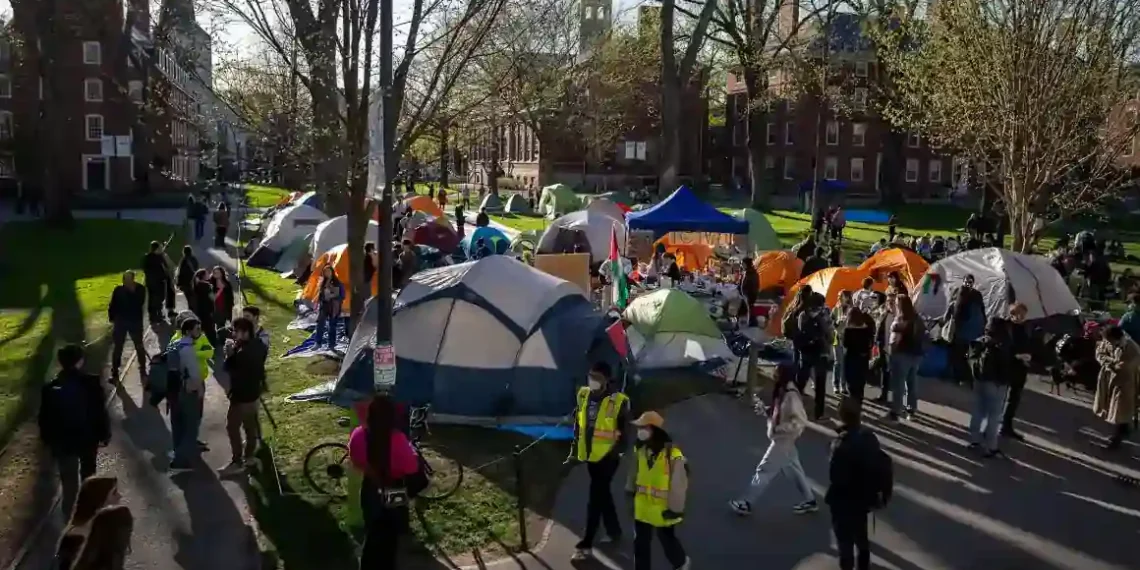Trump Administration Freezes $2.2 Billion in Funding for Harvard Over Policy Rejection
In a significant move, the Trump administration announced on Monday that it would freeze $2.2 billion in multi-year grants and $60 million in contracts at Harvard University after the institution rejected demands for policy changes.
Earlier in the day, Harvard University made it clear that it would not comply with the administration’s proposed policy changes, which had been outlined in a letter from a federal task force. The letter set forth a series of new mandates that the government said would allow Harvard to maintain its financial relationship with the federal government.
Harvard’s response to the freeze was firm. The university issued a statement reaffirming its decision not to accept the proposed changes. Harvard President Alan M. Garber emphasized that the university’s independence and constitutional rights would not be compromised. “We will not surrender to the government’s demands,” Garber said. “The University will not give up its independence.”
The Trump administration’s letter contained several specific demands, including the elimination of diversity, equity, and inclusion programs, reforms to admissions and merit-based hiring practices, and restrictions on certain campus activities. These demands also called for reducing the influence of faculty and administrators who were perceived to prioritize activism over scholarship.
This confrontation marks a turning point in the administration’s relationship with higher education institutions. Harvard, one of the country’s most prestigious universities, has become the first elite school to publicly reject the Trump administration’s attempts to influence its policies.
The proposed changes were part of a broader initiative to combat anti-Semitism on college campuses, following several high-profile incidents related to the Israel-Hamas conflict. A White House spokesperson claimed that the administration’s goal was to “Make Higher Education Great Again” by ensuring that federal funds would not support what it called “dangerous racial discrimination or racially motivated violence.”
Harvard faculty members responded swiftly, filing a lawsuit against the Trump administration. The lawsuit sought to prevent the government from cutting off the university’s funding. The Harvard faculty chapter of the American Association of University Professors (AAUP), along with the national AAUP, argued that the administration’s actions amounted to authoritarianism. “What the President of the United States is demanding of universities is nothing short of authoritarian,” said Harvard Law School professor Nikolas Bowie. He further argued that the administration’s demands violated the First Amendment rights of universities and faculty.
In addition to the lawsuit, the university faces the broader issue of federal grant reviews. The departments of Education, Health and Human Services, and the General Services Administration are reviewing $8.7 billion in grants and more than $255 million in contracts between Harvard and the federal government.
This standoff between Harvard and the Trump administration underscores the growing tension between government influence and academic freedom, with Harvard standing firm in its commitment to autonomy and free inquiry.
As the situation unfolds, the fate of Harvard’s federal funding hangs in the balance, and the outcome may set a significant precedent for future interactions between the federal government and higher education institutions across the country.
This article was rewritten by JournosNews.com based on verified reporting from trusted sources. The content has been independently reviewed, fact-checked, and edited for accuracy, neutrality, tone, and global readability in accordance with Google News and AdSense standards.
All opinions, quotes, or statements from contributors, experts, or sourced organizations do not necessarily reflect the views of JournosNews.com. JournosNews.com maintains full editorial independence from any external funders, sponsors, or organizations.
Stay informed with JournosNews.com — your trusted source for verified global reporting and in-depth analysis. Follow us on Google News, BlueSky, and X for real-time updates.














